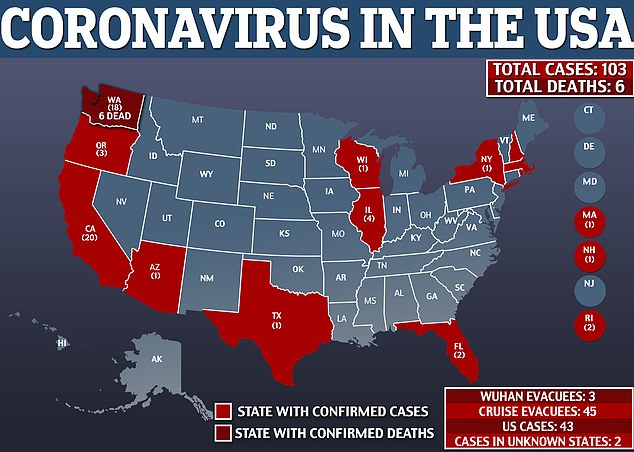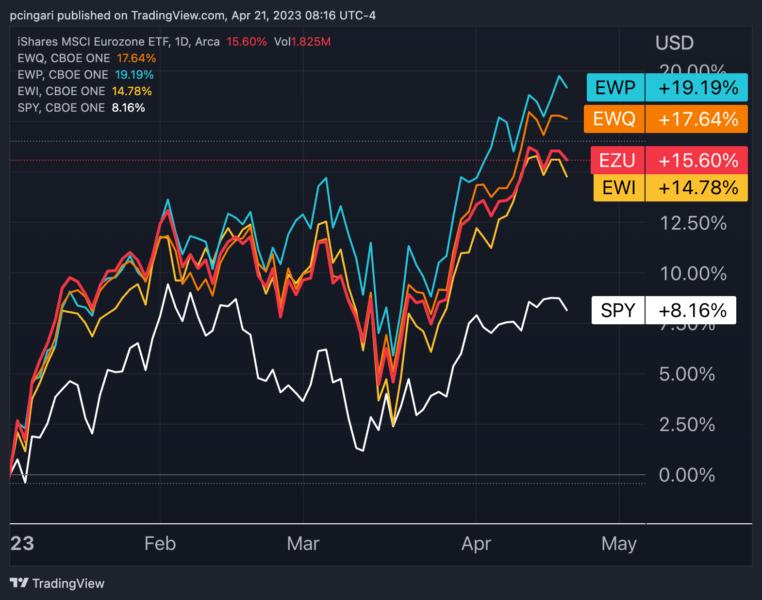Funding Cuts Spark Global Scramble For US Research Talent

Table of Contents
The Impact of Funding Cuts on US Research Institutions
The direct correlation between funding cuts and reduced research opportunities within US research institutions is undeniable. Decreased funding translates directly into fewer projects, less innovative research, and a shrinking pool of skilled scientists. This has significant implications for the nation's future scientific leadership.
-
Decreased grant awards leading to fewer research projects: The highly competitive nature of grant applications means that even small funding reductions result in a significant decrease in the number of projects receiving funding. This limits the scope of research undertaken and stifles innovation. Many promising research avenues are left unexplored due to a lack of financial support.
-
Reduced laboratory funding impacting equipment and staff: Maintaining state-of-the-art laboratories requires substantial funding for equipment upkeep, maintenance, and upgrades. Funding cuts directly affect a lab's ability to conduct cutting-edge research, potentially leading to outdated equipment and compromised research quality. This also results in fewer available positions for crucial lab staff.
-
Fewer postdoctoral positions and limited career advancement opportunities for young scientists: Postdoctoral positions are crucial for training the next generation of scientists. Reduced funding means fewer of these positions, creating a bottleneck in the scientific pipeline and discouraging young researchers from pursuing careers in science within the US. This creates a significant long-term impact on the availability of US research talent.
-
Examples of specific institutions affected and the scale of cuts: Several prominent universities and research institutions across the US have reported significant funding reductions, leading to program closures, layoffs, and the postponement of research projects. For example, [Insert example of a specific institution and the scale of cuts they faced]. These cuts are not isolated incidents but rather represent a widespread trend impacting the entire US research ecosystem. The effect on scientific funding has had devastating consequences.
The Global Competition for US Research Talent
Other countries are actively courting US researchers with enticing incentives, creating a global brain drain and impacting the availability of US research talent. This international recruitment is driven by a desire to enhance their own scientific capabilities and compete on the global stage.
-
Increased research funding and grants in countries like China, Europe, and Canada: Many countries are significantly increasing their investment in research and development, offering substantially more competitive funding opportunities than those available in the US. This makes these countries highly attractive to researchers seeking stable funding for their projects.
-
Attractive salaries and benefits packages: Many nations offer significantly higher salaries and benefits packages compared to the US, particularly for experienced researchers. This financial incentive is a major factor influencing researchers' decisions to relocate.
-
State-of-the-art research facilities and infrastructure: Countries investing heavily in research often boast state-of-the-art facilities and infrastructure, providing researchers with the resources and tools necessary to conduct cutting-edge research.
-
Improved work-life balance and better immigration policies: Many countries offer improved work-life balance and more streamlined immigration policies, making it easier for researchers and their families to relocate and settle.
-
Examples of specific recruitment drives targeting US scientists: [Insert examples of specific recruitment drives by other countries targeting US scientists, perhaps citing news articles or official government statements]. These active recruitment efforts demonstrate the intensity of the global competition for scientific talent.
Long-Term Consequences for US Scientific Leadership
The loss of top research talent to other nations carries significant long-term consequences for the US. The impact extends beyond individual researchers to the broader scientific community and the nation's overall economic competitiveness.
-
Loss of innovative breakthroughs and technological advancements: The emigration of highly skilled researchers reduces the pool of individuals capable of driving innovation and technological advancements. This could slow down the pace of discovery and hinder the development of new technologies.
-
Reduced competitiveness in global scientific and technological fields: Losing talented researchers weakens the US's competitive position in global scientific and technological fields, potentially impacting the country's economic growth and national security.
-
Negative impact on US economic growth and national security: Scientific breakthroughs often translate into economic growth and advancements in national security. The loss of US research talent weakens this pipeline, potentially hindering economic growth and impacting national security in the long term.
-
Brain drain implications for specific research fields (e.g., AI, biotechnology): The impact is particularly pronounced in rapidly evolving fields such as AI and biotechnology, where the loss of top researchers could significantly hinder the US's ability to remain competitive.
-
Potential for future skill shortages in crucial scientific areas: The ongoing emigration of scientists will create a shortage of skilled professionals in crucial scientific areas, impacting future research and development efforts.
Strategies to Retain US Research Talent
To reverse the trend of losing US research talent, a multi-pronged approach is required involving increased government investment, streamlined processes, and improved support for researchers.
-
Increased government investment in research and development: A significant increase in government funding for research and development is essential to provide more competitive grant opportunities and support for research projects.
-
Streamlined grant application processes: Simplifying and streamlining the grant application process can make it less burdensome for researchers, allowing them to focus more on their research.
-
Improved support for early-career researchers: Providing greater support and mentorship for early-career researchers, including increased funding for postdoctoral positions and fellowships, is crucial to retain young talent.
-
Initiatives to attract and retain international researchers: Creating a more welcoming environment for international researchers can help diversify the US research workforce and address potential skill gaps.
-
Collaboration between government, industry, and academia: Fostering stronger collaboration between government, industry, and academia can lead to more innovative research and better career opportunities for researchers.
Conclusion
The exodus of US research talent triggered by significant funding cuts poses a serious threat to American scientific leadership and future innovation. The global competition for skilled researchers is fierce, and without substantial changes, the United States risks losing its position as a global leader in scientific discovery. To avert this crisis, a concerted effort is required to increase research funding, improve support for researchers, and create a more attractive environment for scientific talent. Securing the future of US research requires immediate and decisive action to retain and attract top-tier US research talent and prevent further damage to the nation’s scientific ecosystem. Investing in and protecting US scientific talent is crucial for maintaining national competitiveness and ensuring future innovation.

Featured Posts
-
 One Killed Six Wounded In North Carolina University Shooting
Apr 29, 2025
One Killed Six Wounded In North Carolina University Shooting
Apr 29, 2025 -
 Access To Birth Control Examining The Impact Of Over The Counter Options Post Roe
Apr 29, 2025
Access To Birth Control Examining The Impact Of Over The Counter Options Post Roe
Apr 29, 2025 -
 Are Stretched Stock Market Valuations Justified Bof A Weighs In
Apr 29, 2025
Are Stretched Stock Market Valuations Justified Bof A Weighs In
Apr 29, 2025 -
 Mets Rotation Has Pitchers Name Earned A Spot
Apr 29, 2025
Mets Rotation Has Pitchers Name Earned A Spot
Apr 29, 2025 -
 Analyzing Tylor Megills Pitching How Hes Helping The Mets Win
Apr 29, 2025
Analyzing Tylor Megills Pitching How Hes Helping The Mets Win
Apr 29, 2025
Latest Posts
-
 Traffic Stop Turns Deadly Georgia Deputy Killed Another Officer Shot
Apr 29, 2025
Traffic Stop Turns Deadly Georgia Deputy Killed Another Officer Shot
Apr 29, 2025 -
 One Killed Six Wounded In North Carolina University Shooting
Apr 29, 2025
One Killed Six Wounded In North Carolina University Shooting
Apr 29, 2025 -
 Fatal Shooting Of Georgia Deputy During Traffic Stop One Dead One Injured
Apr 29, 2025
Fatal Shooting Of Georgia Deputy During Traffic Stop One Dead One Injured
Apr 29, 2025 -
 North Carolina University Shooting Leaves One Dead Six Injured
Apr 29, 2025
North Carolina University Shooting Leaves One Dead Six Injured
Apr 29, 2025 -
 Georgia Law Enforcement Officer Killed Another Wounded During Traffic Stop
Apr 29, 2025
Georgia Law Enforcement Officer Killed Another Wounded During Traffic Stop
Apr 29, 2025
